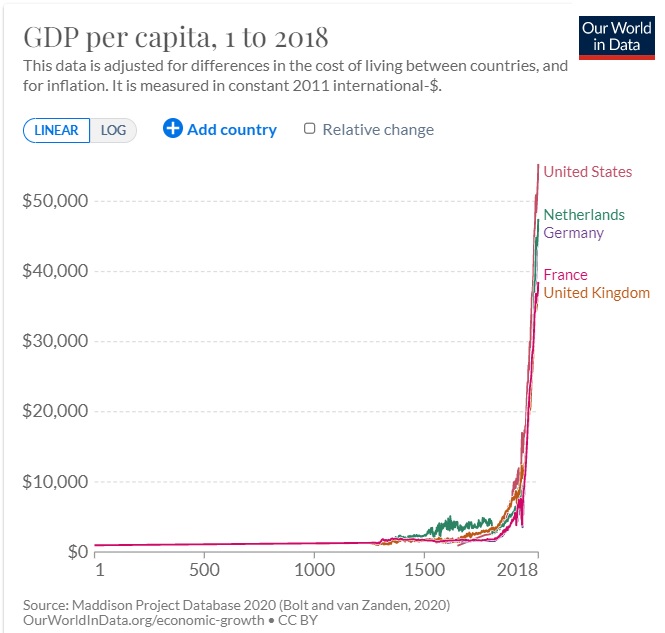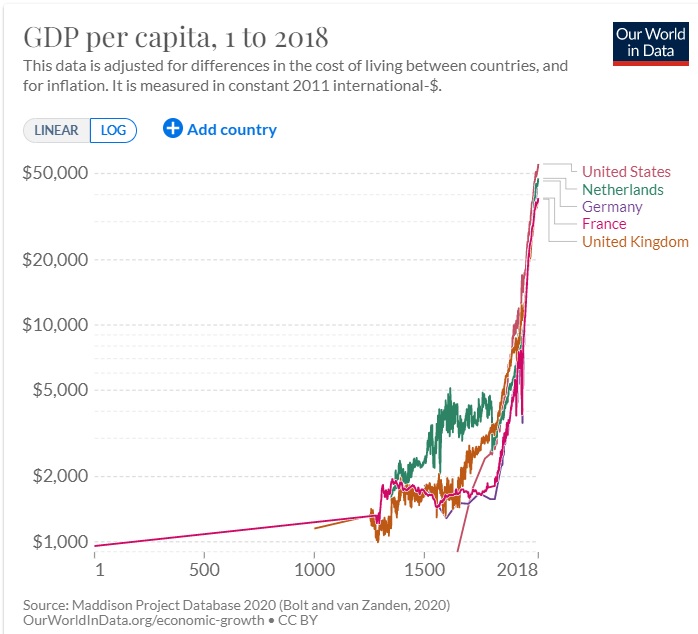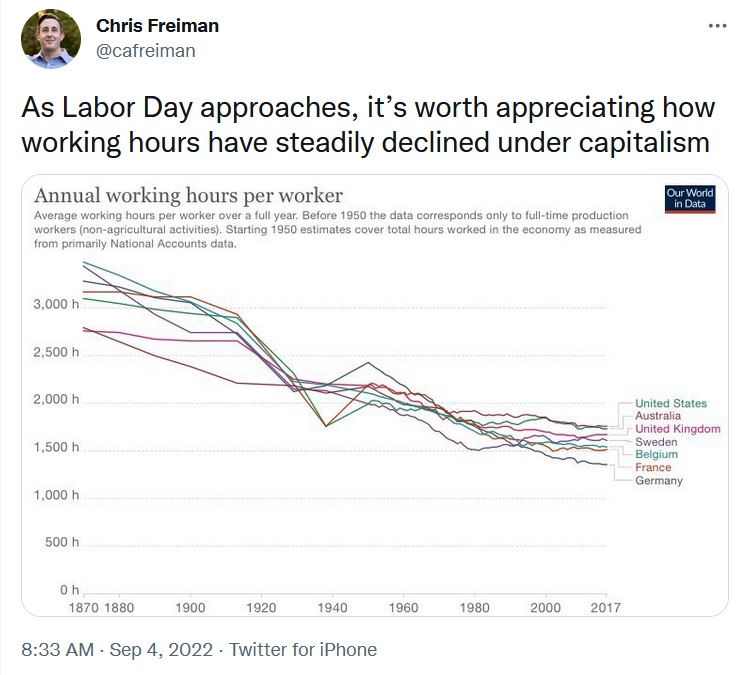I have a multi-part series making the case for capitalism (Part I, Part II, Part III, Part IV, Part V, and Part VI), and I’ve shared lots of long-run data showing how some people began to enjoy unimaginable prosperity as capitalism emerged and monarchism, feudalism, and mercantilism began to fade.
For those interested in this remarkable story of human enrichment, Don Boudreaux and Deirdre McCloskey have must-watch videos on how capitalism enabled (some) nations to escape poverty.
But not everybody understands or appreciates the benefits of capitalism.
MSN has an article, authored by Claire Conway, about new research that ostensibly shows that capitalism has been bad news for people.
…a study recently published in World Development…provided three conclusions. They found that extreme poverty was not, in fact, a normal or universal condition prior to the 19th century. …The second conclusion is that the rise and expansion of capitalism saw a dramatic deterioration in human welfare. …The third conclusion reached is that recovery from this prolonged period of immiseration occurred only recently. Progress in human welfare did not begin until the late 19th century in Northwest Europe and not until the mid-20th century in the global South. Researchers point out that this coincides with the rise of the labor movement, de-colonization, and socialist political parties.
At the risk of understatement, these results are very shocking.
So I tracked down the study, authored by Dylan Sullivan and Jason Hickel, which can be read here. Here are some highlights from the research.
The common notion that extreme poverty is the “natural” condition of humanity and only declined with the rise of capitalism rests on income data that do not adequately capture access to essential goods. Data on real wages suggests that, historically, extreme poverty was uncommon and arose primarily during periods of severe social and economic dislocation, particularly under colonialism. The rise of capitalism from the long 16th century onward is associated with a decline in wages to below subsistence, a deterioration in human stature, and an upturn in premature mortality. ..Where progress has occurred, significant improvements in human welfare began only around the 20th century. These gains coincide with the rise of anti-colonial and socialist political movements.
Yes, shocking results. But, having read the article, they are not accurate results.
Some of the mistakes are fundamental, such as blaming capitalism for bad results under colonialism.
Other mistakes are the result of data manipulation, such as the authors arbitrarily deciding that poverty only exists during times of famine.
But I want to focus on one of the study’s final points, which is that human progress is correlated with the rise of socialism.
Here are some further excerpts from the study.
The European data, then, does not support the standard poverty narrative. …The rise of capitalism, rather than delivering improvements in human welfare, was associated with plummeting wages… Progress did not begin until the 1880s in the European core, and the 20th century in the European periphery…The evidence reviewed here suggests that, where poverty has declined, it was not capitalism but rather progressive social movements and public policies…that freed people from deprivation. …Poverty alleviation and gains in human health have historically been linked to socialist political movements and public action, not to capitalism.
Is this true? Were people in Western Europe just as poor in 1875 as they were in 1575? Or perhaps even worse off? Did living standards only increase after government started to intervene and redistribute?
Let’s go to Our World in Data, operated by Max Roser and his team at Oxford University.
Here’s a chart on major European economies (along with the United States, for the benefit of U.S. readers). As you can see, it does appear that almost all the growth has occurred very recently.

But we just looked at a linear chart, which is considered inferior when measuring and understanding long-run trends.
What happens if we look at a logarithmic chart?

As you can see, rapid growth began well before 1900. Before income taxes. Before the welfare state. And long before anything resembling socialism.
In other words, Sullivan and Hickel have a very shaky hypothesis that collapses like a house of cards when you examine real-world data.
But we don’t need to rely on numbers from 100 years ago or 200 years ago. My “anti-convergence club” is based on dozens of comparisons over recent decades and in every case we see that market-oriented nations easily out-perform countries with more bigger and more intrusive governments.
The bottom line is that Sullivan and Hickel have no good answer to my never-answered question.
P.S. The authors assert that there’s more statism today than in the 1800s, probably because they are focused on fiscal policy. But that may not be true because of big, offsetting improvements in other policy areas.
———
Image credit: Jacob Bøtter | CC BY 2.0.




